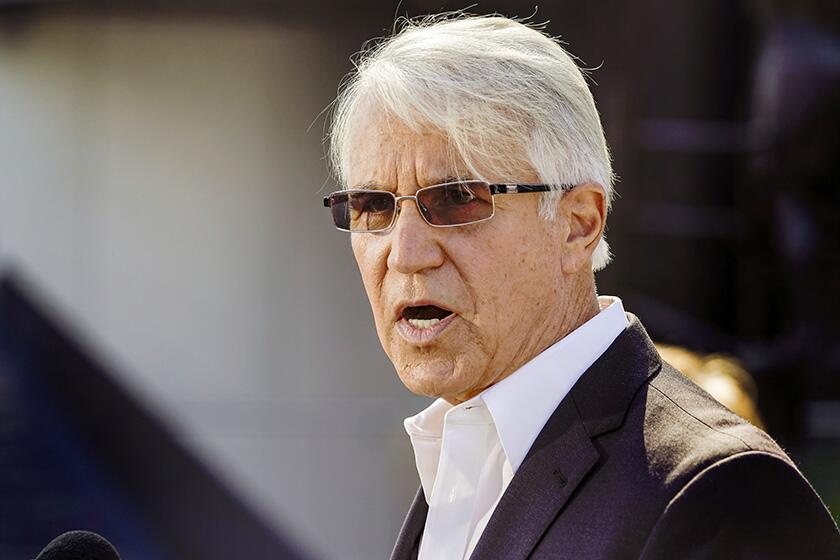How Gov. Brown can save Prop. 30
Since the day he took office, Gov. Jerry Brown has been on a crusade to convince Californians that he is not just fiscally responsible but downright stingy. During his first week as governor, he ordered thousands of state workers to give up their government-issued cellphones. Since then, he has negotiated to rein in pensions for public employees, initiated welfare reforms that were included in the last budget and bragged about his preference for flying Southwest Airlines. (“I take the damn middle seat,” he told a Los Angeles television reporter last week.)
Brown was smart enough to know that unless he has demonstrated his willingness to pinch pennies, it was unlikely that Californians would reward him by passing Proposition 30, his proposal to raise income and sales taxes to prevent cuts to the state’s public schools and public safety programs.
But while Brown has successfully convinced Californians that the schools are in need of additional funding, polling shows he has not yet convinced them that state government can be trusted to spend their tax dollars wisely. And that leaves Proposition 30 very much in doubt, with support falling off in recent weeks.
ENDORSEMENTS: The Times’ recommendations for Nov. 6
One reason might be that, despite all of the governor’s public parsimony, there is one highly visible spending spree supported by Brown: construction of the state’s proposed high-speed rail system.
Although Californians passed a ballot initiative authorizing the project in 2008, a USC Dornsife/Los Angeles Times poll taken this year showed that almost 60% of voters would oppose it if were on the ballot now. Though most of the money to fund its construction would not come from the state’s general fund, the combination of California’s ongoing budget difficulties and the rail project’s ballooning cost projections have made it a symbol of state government’s fiscal irresponsibility.
Some have suggested that Brown sees the project as something that would cement his legacy and would be recognized long after the budgetary peaks and valleys of his term in office have been forgotten. Armchair psychologists point to his father’s construction of university campuses, freeways, dams and other public works projects, and wonder if the son aspires to similarly tangible feats.
Regardless of his motivations, though, Brown is facing an electorate that is very skeptical of state government spending. His support for a multibillion-dollar rail project doesn’t help his argument that the state can be trusted with taxpayer money.
A USC/Times poll last week showed that support for Proposition 30 had dropped 9 points in the preceding month and almost 20 points since last spring, leaving it with a slim 4-point lead, and backing from only 46% of likely voters. That downward trend is alarming for backers of the initiative, and won’t be easy to reverse. Proposition 30 can still pass, but its prospects are waning.
Brown has little time. He needs to immediately move to convince voters that he is serious about putting the state’s fiscal house in order. One action the governor could take at this late date that might still be sufficiently dramatic to capture public attention would be for him to publicly announce that he is reversing his support for high-speed rail and to ask the Legislature to withdraw the funding it has allocated for the project pending a second public vote.
He could then hit the campaign trail for a closing rush of speeches, ads and grass-roots outreach explaining that he did it to convince voters he is serious about conserving money.
Such a declaration from the governor would tell voters that although he still believes the state would benefit from a high-speed train at some point, he knows that California’s education and safety needs must come first.
The governor would clearly prefer to both pass Proposition 30 and begin construction on high-speed rail. But leadership is ultimately about setting priorities. It’s time for Jerry Brown to tell the people of California what’s more important to him: the money or the train.
Dan Schnur is the director of the Jesse M. Unruh Institute of Politics at USC.
More to Read
A cure for the common opinion
Get thought-provoking perspectives with our weekly newsletter.
You may occasionally receive promotional content from the Los Angeles Times.










